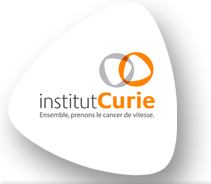Ampullary tumors: French Intergroup Clinical Practice Guidelines for diagnosis, treatments and follow-up (TNCD, SNFGE, FFCD, UNICANCER, GERCOR, SFCD, SFED, ACHBT, AFC, SFRO, RENAPE, SNFCP, AFEF, SFP, SFR)
Résumé
Background
Management of ampullary tumors (AT) is challenging because of a low level of scientific evidence. This document is a summary of the French intergroup guidelines regarding the management of AT, either adenoma (AA) or carcinoma (AC), published in July 2023, available on the website of the French Society of Gastroenterology (SNFGE) (www.tncd.org).
Methods
A collaborative work was conducted under the auspices of French medical, endoscopic, oncological and surgical societies involved in the management of AT. Recommendations are based on recent literature review and expert opinions and graded in three categories (A, B, C), according to quality of evidence.
Results
Accurate diagnosis of AT requires at least duodenoscopy and EUS. All patients should be discussed in multidisciplinary tumor board before treatment. Surveillance may only be proposed for small AA in familial adenomatous polyposis. For AA, endoscopic papillectomy is the preferred option only if R0 resection can be achieved. When not possible, surgical papillectomy should be considered. For AC beyond pT1a N0, pancreaticoduodenectomy is the procedure of choice. Adjuvant monochemotherapy (gemcitabine, 5FU) may be proposed. For aggressive tumors (pT3/T4, pN+, R1, poorly differentiated AC, pancreatobiliary differentiation) with high risk of recurrence, 6 months polychemotherapy (CAPOX/FOLFOX for the intestinal subtype and mFOLFIRINOX for the pancreatobiliary or the mixed subtype) may be a valid alternative. Clinical and radiological follow up is recommended for 5 years.
Conclusions
These guidelines help to homogenize and highlight unmet needs in the management of AA and AC. Each individual case should be discussed by a multidisciplinary team.
| Origine | Publication financée par une institution |
|---|
